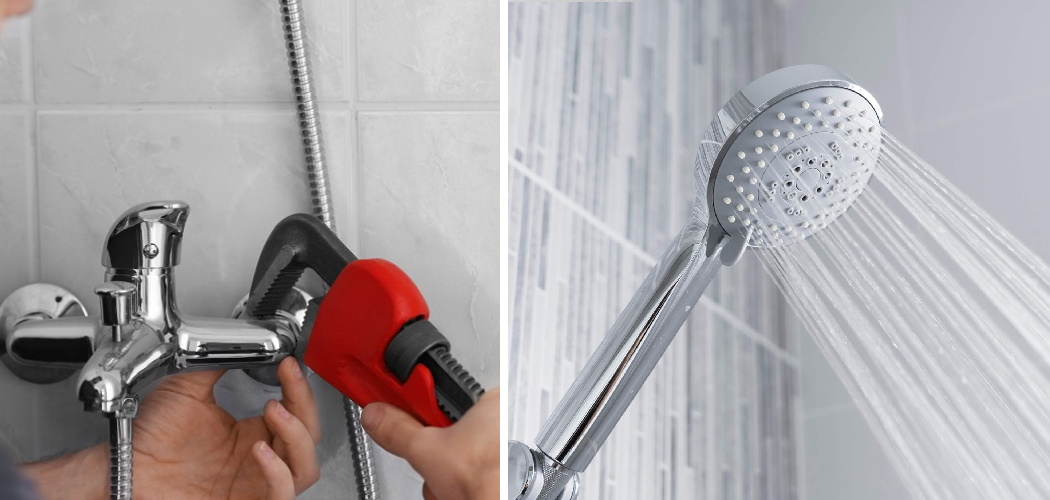Are you sick of having to listen to the loud, constant hum coming from your shower head? Do you dread taking baths and showers because of the noise they give off? If so, then it’s time to take control of the situation and get rid of that annoying noise which can easily be fixed with the right knowledge and tools.
You’re not alone – many people find this sound unbearable and it can be challenging to solve. Fortunately, there are a few simple steps that could help remedy your noisy shower for good!
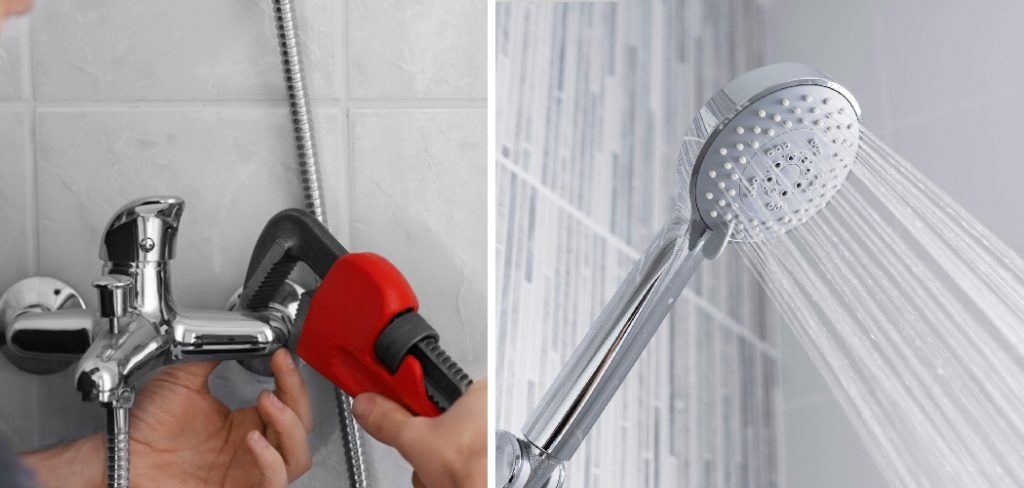
In this blog post, we’ll explore how to fix a noisy shower and provide you with helpful tips on how to diagnose and address the source of the irritating sound. Keep reading so that you can gain insight into fixing your much-dreaded issue once and for all.
How Do You Understand Whether It is Noise?
If you hear a rattling, banging or whistling noise coming from your shower, then it is likely that the cause of the problem lies within the pipes. This could be due to loose pipes, an airlock in your plumbing system or a blockage that is causing pressure to build up and create a loud sound.
If this is the case, then you need to locate the source of the noise and take action to fix it. When you identify the sound coming from your shower, you need to inspect the pipes in and around the shower. Look for any signs of movement or wear that might point towards a loose pipe.
If there is none, then move on to check the water pressure in your plumbing system. A low flow rate can create airlocks which make whistling noises as they pass through. If your water pressure is too low, then you may need to adjust the regulator or call a plumber if it is not something you can fix yourself.
15 Reasons: Why Does it Make Noise?
1. Loose Pipe Connections
It is possible that the pipes leading to your shower are loose and vibrate when water pressure passes through them, causing a loud noise. When you experience this, you should check to make sure all connections are tight and secure.
2. Clogged Aerator
Having a clogged aerator can cause excess noise coming from the shower head. This is likely due to sediment buildup blocking the flow of water through the aerator. Don’t think twice and try to unscrew the aerator to clean it out.
3. Pressure Valves are Open
If pressure valves are open and connected to your shower pipes, this can cause an annoying noise when water passes through them. Sometimes , it may be as simple as closing the valve to get rid of the noise.
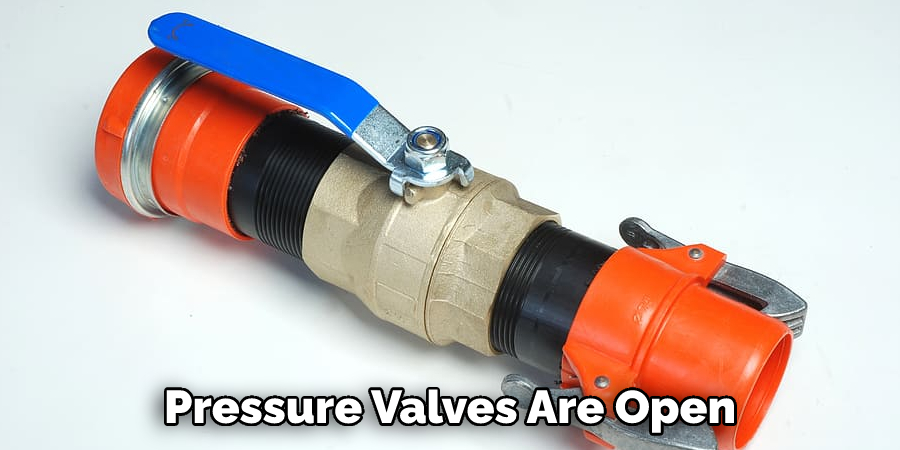
4. Malfunctioning Pressure Regulator
If you have a pressure regulator installed in your shower setup, it can create high-pitched noises when there is an issue with its functionality. So you should be aware of this issue and have it looked at by a professional.
5. Low Water Pressure
Low water pressure can also be the cause behind your noisy shower, as it will not only make noise but also reduce the efficiency of the shower head. You should check to see if there is an issue with your water supply before trying any other solutions.
6. Worn Out Fixtures
Worn out fixtures can also be a factor causing loud noises in your shower. It is possible that the vibration of water passing through them could cause excessive noise, so it is important to make sure all your fixtures are in good condition.
7. Water Pressure Too High
If the water pressure is too high coming into your shower, it can cause vibrations and noise when turning on and off the shower head. It wil be necessary to have a pressure regulator installed in order to reduce the amount of pressure coming into your shower.
8. Faulty Shower Head
Sometimes, a faulty shower head can be the cause of a noisy shower. It is possible that the nozzle inside your shower head could be blocked and this can lead to loud sounds when water passes through it. You should replace your shower head if it is damaged.
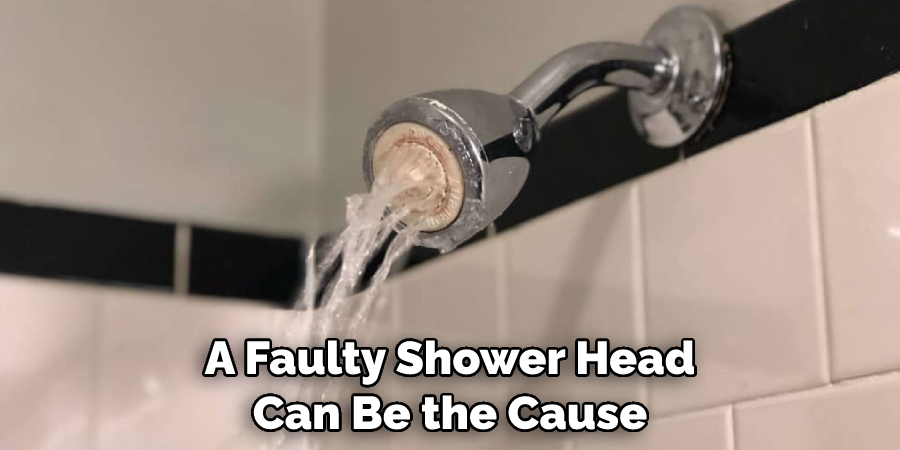
9. Loose Hinges
It is possible that the hinges on your shower door or enclosure are not secure and this can cause vibration when water pressure passes through them, resulting in a noisy experience. When you notice this issue, it is best to tighten up the hinges or replace them if they are worn out.
10. Loose Bolts
If your shower has bolts that hold everything together and these become loose, it can cause a lot of vibration when water pressure passes through them, resulting in loud noises. Often you may need to use a wrench to tighten these bolts.
11. Old Pipework
Old pipework in your shower setup can cause loud noises due to corrosion, as well as reduce the pressure of water coming through them. But don’t worry; a professional plumber can help you replace old pipes with new ones.
12. Faulty Check Valve
If there is a faulty check valve in your shower setup, it can cause water to move through the pipe and create loud noises when it does so. You may need to replace the valve in order to fix this issue.
13. Broken Seals
If your shower has seals that are worn out or broken, they may be unable to contain the water pressure which can cause a rattling or squeaking noise when you turn on and off the shower head. But don’t worry; a professional plumber can help you replace the seals.
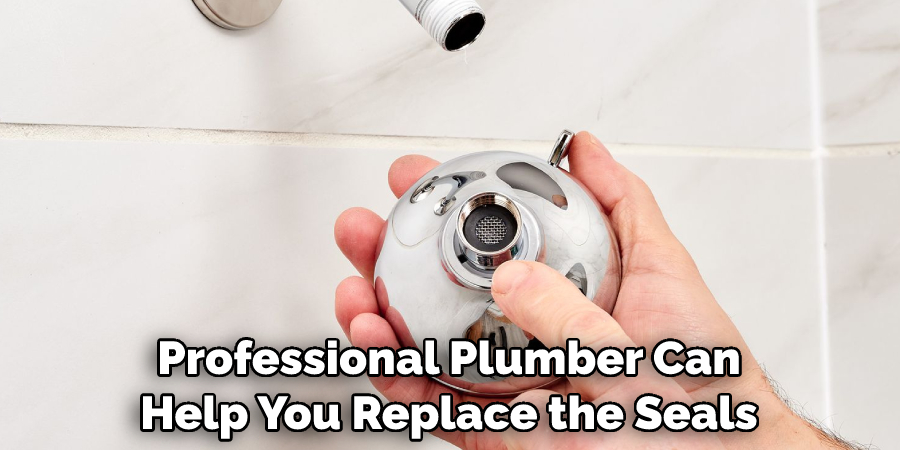
14. Faulty Pressure-balancing Valve
Faulty pressure-balancing valves can cause an excessive amount of noise coming from your shower, as they are designed to regulate water pressure and flow. Your best bet is to have a plumber inspect your pressure-balancing valve and fix it if necessary.
15. Mineral Build-up
Mineral build-up can cause a noisy shower if it is not cleaned regularly. Mineral deposits can build up on the shower head, clogging it and causing an imbalance between hot and cold water. When this happens, it is best to replace your shower head and clean the pipes regularly.
Noisy showers can be annoying and cause disruption in your home. However, the article will also help you to determine the causes of noise. If not, then you may read below how to fix a noisy shower.
10 Easiest Ways: How to Fix a Noisy Shower?
1. Check the Showerhead for Loose Connections
The first step is to check if the showerhead is securely attached and if any of the connections have become loose. Unscrew or tighten any necessary connections using a set of wrenches or pliers, depending on the type of connection used.
2. Inspect Pipes and Joints
If the showerhead is securely attached, then inspect the pipes and joints for any signs of damage or wear. Replace any corroded or damaged plumbing components with new parts. Make sure all connections are watertight and securely tightened.
3. Install a Pressure Regulator Valve
A pressure regulator valve helps to reduce the pressure of incoming water by limiting the amount of pressure that’s applied to pipes and joints. This can help reduce noise from high-pressure water. It will also help to lower your water pressure bills.
4. Replace the Faucet Washers
Faucet washers are small, rubber seals that keep water from leaking out at the base of the showerhead. Over time, these washers can become compromised and cause the showerhead to become noisy. Replace these washers with new ones to reduce noise.
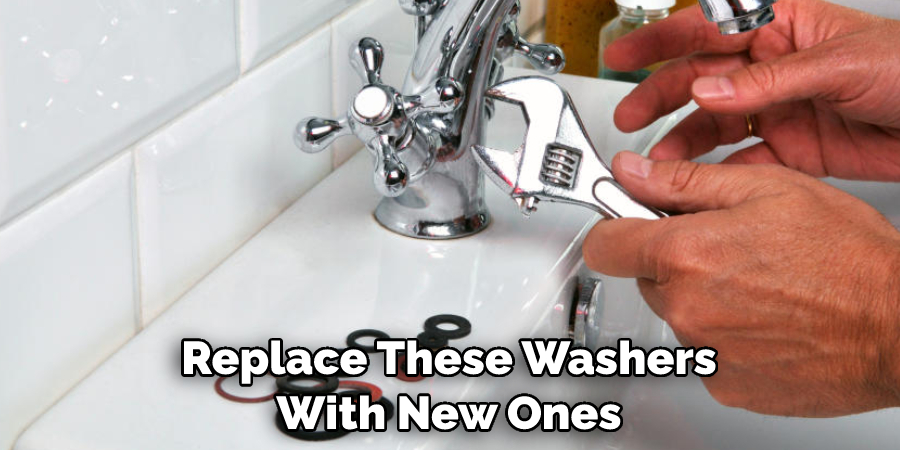
5. Replace Washers and O-Rings
A faulty washer or o-ring can cause a variety of plumbing issues, including noise. Inspect the existing hardware and replace any worn or damaged components with new parts. Make sure to properly lubricate all connections once installed for better performance and less noise.
6. Invest in a Good Quality Showerhead
Sometimes, investing in quality can go a long way. If your shower is outdated or made with cheap materials, replacing it with a higher-end model could solve the issue. Look for models designed to reduce water pressure and/or noise from excess water flow. This can help eliminate the noise while also improving your showering experience.
7. Check and Adjust Water Pressure
If you’re still having issues with noisy pipes, it may be time to check the water pressure in your home. A water pressure gauge can tell you if the incoming pressure is too high or low for your system. If it
8. Install a Water Softener
The presence of hard minerals in your water supply can cause loud banging noises coming from the pipes. Installing a water softener will reduce the amount of these disruptive particles and create softer, quieter water flow.
9. Re-Grout Tile
If you have tile in your bathroom, then check to see if it needs re-grouting. Loose grout can allow water seepage and create a layer of water between the tiles. This can cause vibration in the pipes and lead to a noisy shower. Re-grout your tile regularly to reduce noise.
10. Insulate Pipes
Another way to prevent loud banging noises coming from pipes is to insulate them with foam pipe insulation. This special material helps to absorb vibrations and sound, reducing noise and energy loss. It’s also relatively easy to install and doesn’t require any special tools.
Quick Maintenance Tips From Being a Noisy Shower
- Check the water pressure of your shower head and make sure it’s within manufacturer-recommended limits.
- Inspect your shower head for mineral build up – lime or calcium deposits can contribute to a noisy shower. Clean it with a brush and acid-based cleaner or vinegar if necessary.
- Make sure the nuts on the pipe are tightened properly, ensuring that no water is leaking out from them.
- Inspect the gaskets and washers for any signs of damage or wear. Replace them if needed.
- Clean out any blockages in the pipes that can be causing noise due to air pressure escaping.
- Check the hot and cold water valves, making sure they are turned off completely when not in use.
- If you have a diverter, make sure it is working correctly.
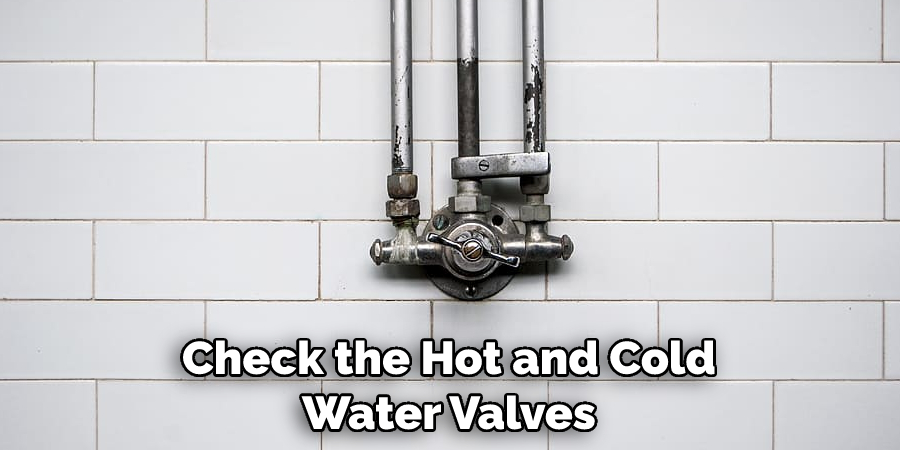
Final Verdict
Whether your noisy shower is due to a worn out cartridge, improperly installed pipes, or low water pressure, you now have the knowledge and tools to make it quiet again. It may seem intimidating at first, but most of these fixes don’t require specialized skills or professional help.
All it takes is patience and dedication to get through it – and now you are acknowledged exactly what tools you’ll need when you are reading how to fix a noisy shower. Taking on DIY projects like this can accomplish two things: you will save money while also gaining confidence in your own abilities.

